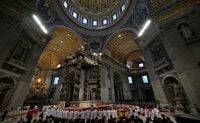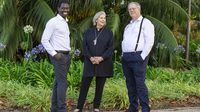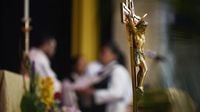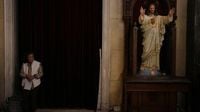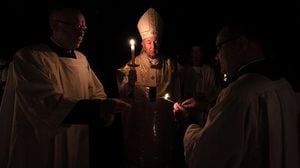For more than 400 years, the Catholic and Orthodox churches have followed different methods to determine the date of Easter. However, this year, both Eastern and Western churches will celebrate the resurrection of Jesus Christ on the same day, April 20, 2025. This coincidence is particularly significant as it marks the 1,700th anniversary of the historic Council of Nicaea, where early Christian leaders gathered to unify Christian doctrine.
The movable date for Easter adheres to a seemingly simple rule: it is celebrated on the Sunday following the first full moon on or after the spring equinox. Yet, the divergence between the two major Christian traditions stems from a shift that occurred in 1582, when Pope Gregory XIII introduced the Gregorian calendar for the Western church. Meanwhile, the Eastern Orthodox Church retained the older Julian calendar. This divergence in calendars, along with differing ecclesiastical calculations for lunar cycles and equinoxes, has resulted in Easter dates that can be as much as five weeks apart.
Pope Francis has expressed his hope for a unified Easter date, emphasizing the importance of this year’s celebration in light of the anniversary of the Council of Nicaea. During a prayer at the Basilica of St. Paul in Rome, he stated, "Once again, I renew my appeal: Let this coincidence serve as a sign — a call to all Christians to take a decisive step toward unity around a common date for Easter." This call for unity is not new; in fact, after a trip to Turkey in 2014, Francis remarked on the absurdity of differing Easter dates, saying, "It is a bit ridiculous. Tell me, your Christ, when is he resurrected? Next week? Mine was resurrected last week."
In his pursuit of unity, Pope Francis has found a strong ally in Ecumenical Patriarch Bartholomew, the spiritual leader of the world's Orthodox Christians. The two leaders share a close bond, often referring to each other as brothers. Bartholomew has described the Easter initiative as "a real step toward repairing old conflicts." The idea of a common Easter date has been discussed since the 1960s, gaining momentum whenever the celebrations align. However, the challenge remains that one side would need to concede to the other's calendar.
Protestants, who follow the same calendar as Catholics, have also been involved in these discussions. The World Council of Churches, based in Geneva, has proposed a compromise that would utilize modern astronomy to calculate the date based on Jerusalem time, while adhering to the traditional rule established centuries ago. Lutheran Bishop Heinrich Bedford-Strohm, a prominent official within the WCC, emphasized the importance of unity in today’s polarized world, stating, "It has never been more important than now, because we live in a polarized world and people all over the world yearn for more unity."
Despite the pope's influential position within the Catholic Church, Bartholomew's authority is largely symbolic, as national and local Orthodox churches operate independently. The ongoing conflict involving the Russian Orthodox Church and other Orthodox-majority countries further complicates the dialogue aimed at reaching a consensus on a unified Easter date.
At a recent Holy Week service in Athens, Father Anastasios welcomed parishioners into the Church of Saint Dimitrios Loumbardiaris, a restored chapel near the Acropolis. He acknowledged the importance of building bridges with other branches of Christianity but cautioned against compromising the faith and traditions of their ancestors. "We can try to build bridges, but we cannot distort our faith or the traditions of our ancestors, or the dogmas Christ himself handed down," he said. "There are deeply rooted differences. From my view and that of many people here, the unity sought in the past by the Roman Catholic Church often wasn’t sincere; it came with strings attached, was more about dominance than genuine reconciliation."
As discussions between the churches continue, there are already examples of common Easter celebrations in some regions. The Orthodox Church in Finland switched its Easter date in the 1920s to align with the Lutheran majority, while Catholics in Greece have celebrated with the rest of the country since 1970. Joseph Roussos, a member of a Catholic community on the Greek island of Syros, recalled the past when Easters were celebrated separately: "It wasn’t a good situation. But when we did celebrate Easter together, there was great harmony. We live very well today, and it’s truly beautiful. I hope it stays that way."
This year’s Easter celebration is not just significant for its historical context; it also serves as a moment of reflection for religious leaders across the globe. In Perth, Australia, leaders like Reverend Victor Owuor and Archbishop Kay Goldsworthy have emphasized the importance of Jesus Christ's resurrection, noting that Easter is a time for Christians to come together, celebrating the core tenets of their faith.
Easter Sunday, observed on April 20, 2025, will not only commemorate the resurrection of Jesus Christ but also highlight the ongoing discussions about unity among Christian denominations. It serves as a reminder of the shared beliefs that bind Christians together, despite the historical divisions that have persisted for centuries.
As the date approaches, many Christians are hopeful that the spirit of collaboration and unity will prevail, leading to a future where all Christians can celebrate Easter together, recognizing the profound significance of Jesus' resurrection in their faith.
